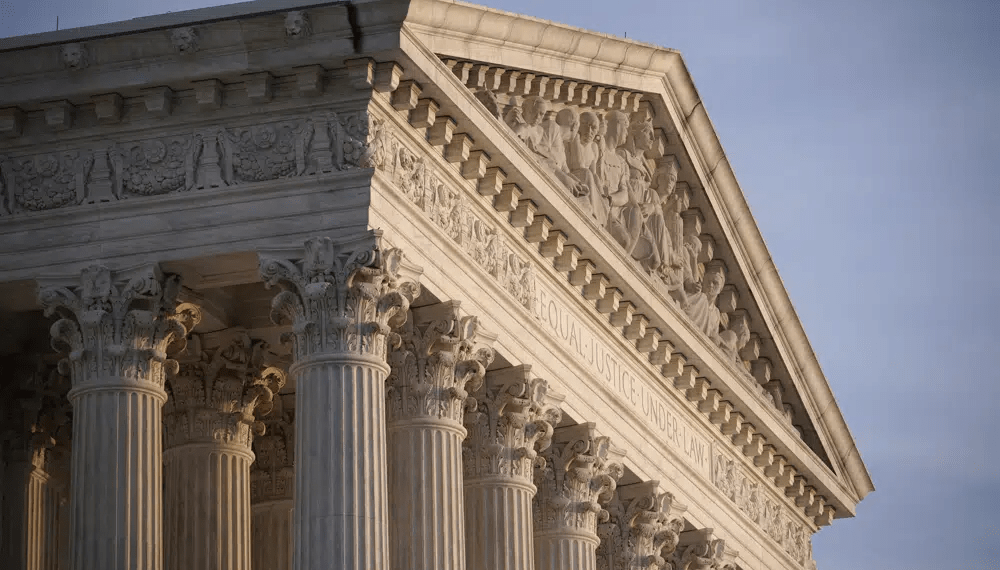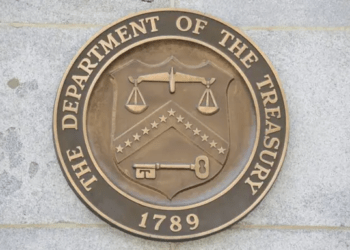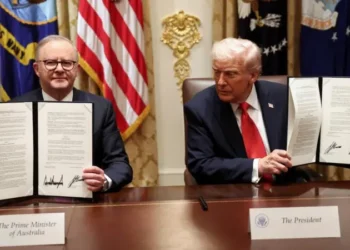The Supreme Court has rejected a Republican-led challenge to a long-suspended Biden administration policy that prioritizes the deportation of immigrants who are deemed to pose the greatest risk to public safety or were picked up at the border.
The justices voted 8-1 to allow the Biden policy to take effect, emphasizing that there is not enough money or manpower to deport all 11 million or so people who are in the United States illegally.
The ruling on Friday addressed a challenge brought by Louisiana and Texas, two states which had argued that federal immigration law requires authorities to detain and deport even those who pose little or no risk.
Texas and Louisiana claimed in their lawsuit that they would face added costs of having to detain people the federal government might allow to remain free inside the United States, despite their criminal records.
However, the Supreme Court held that the states lacked the legal standing, or right to sue, in the first place.
A federal judge in Texas had previously ruled in favour of Texas and Louisiana and briefly suspended the Biden administration policy.
Justice Brett Kavanaugh wrote in his opinion for the court that the executive branch has no choice but to prioritize enforcement efforts.
“That is because the Executive Branch invariably lacks the resources to arrest and prosecute every violator of every law and must constantly react and adjust to the ever-shifting public-safety and public welfare needs of the American people.”
Justice Brett Kavanaugh
The issue revolves around a Department of Homeland Security directive from September 2021 that halted deportations unless people had engaged in acts of terrorism, espionage, or “egregious threats to public safety.”

The guidance, released after Joe Biden’s election as President, amended a Trump-era directive to deport individuals who were in the country illegally, regardless of their criminal histories or links to the local community.
In Friday’s decision, Kavanaugh’s opinion spoke for just five justices, including Chief Justice John Roberts and the three liberals. Justices Clarence Thomas, Neil Gorsuch and Amy Coney Barrett agreed with the outcome for other reasons.
Justice Samuel Alito filed a solo dissent, writing that the decision improperly favors the President over Congress. “And it renders States already laboring under the effects of massive illegal immigration even more helpless,” Alito wrote.
‘A Welcome Step’ Towards Better Immigration Enforcement
The Southern Poverty Law Center, a legal and rights advocacy group, noted that the ruling was a “welcome step in the process to reimagine our immigration enforcement priorities.”
In a statement, Efrén Olivares, Deputy Legal Director of the organization’s Immigrant Justice Project, opined that “Immigrants of all nationalities, backgrounds and walks of life are contributing members of our communities.”
“With finite resources, the federal agencies tasked with enforcing immigration laws should be allowed to set common-sense, reasonable and lawful priorities,” Olivares added.
In a separate immigration-related ruling on Friday, the Supreme Court also rejected a challenge to a federal law that makes it illegal to “encourage or induce” a non-citizen to enter the country irregularly.
The 7-2 ruling nullified a lower-court decision that said the law was unconstitutional. It had been challenged on free speech grounds.
“Properly interpreted, this provision forbids only the intentional solicitation or facilitation of certain unlawful acts. It does not ‘prohibit a substantial amount of protected speech’ — let alone enough to justify throwing out the law’s ‘plainly legitimate sweep’,” Conservative Justice Amy Coney Barrett wrote in the majority opinion.
Liberal Justices Sonia Sotomayor and Ketanji Brown Jackson dissented.
Biden has faced Republican criticism for his immigration policies since taking office. The issue is expected to factor prominently in the upcoming 2024 elections.























